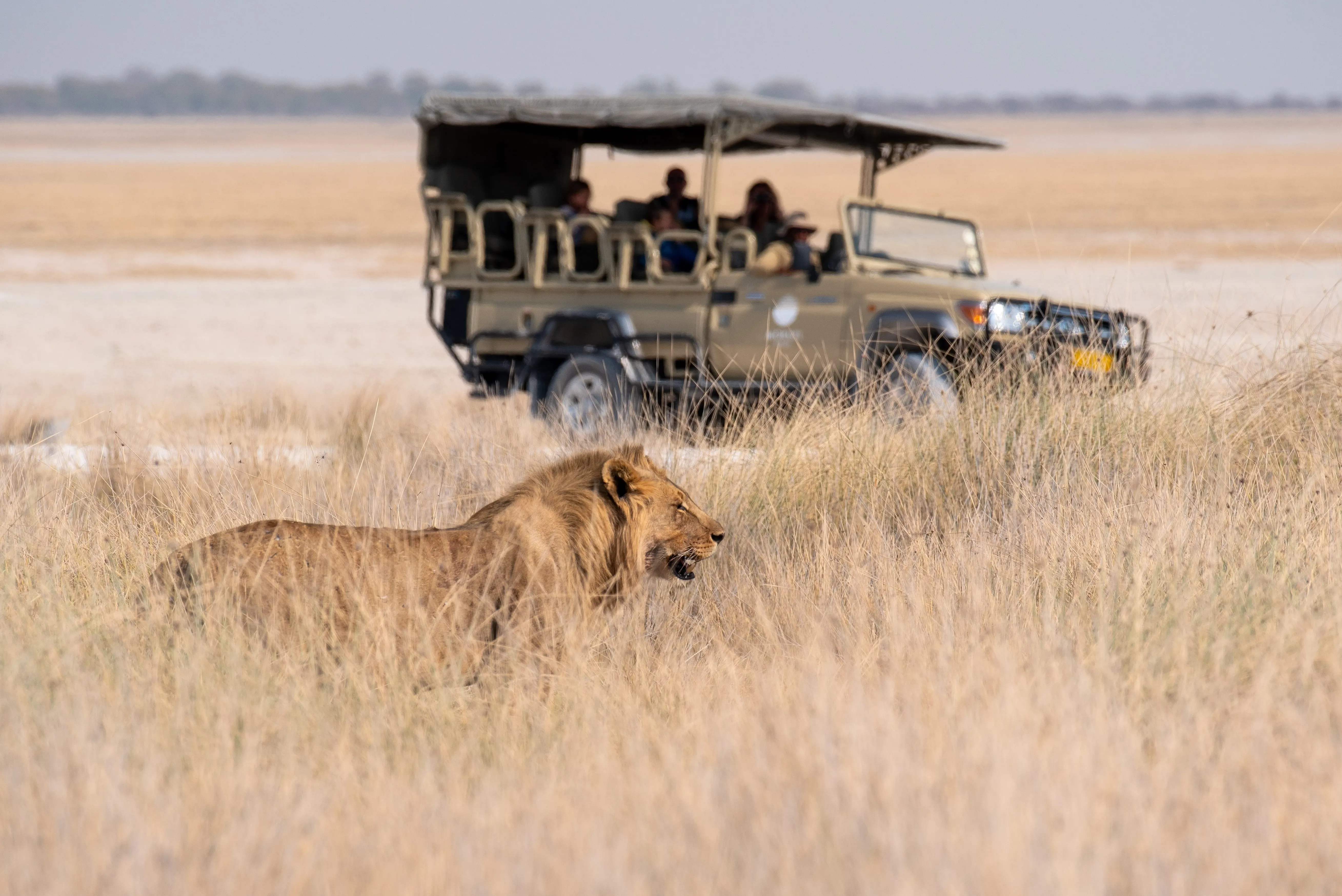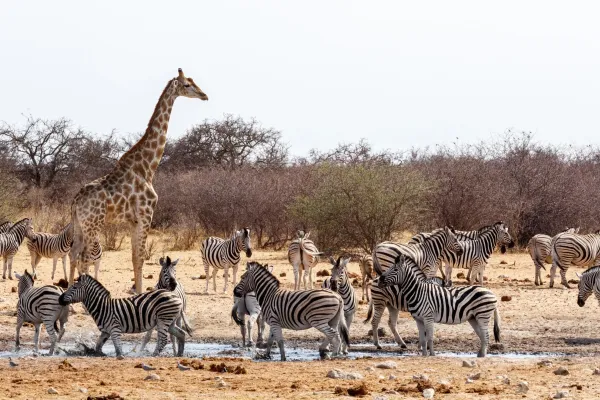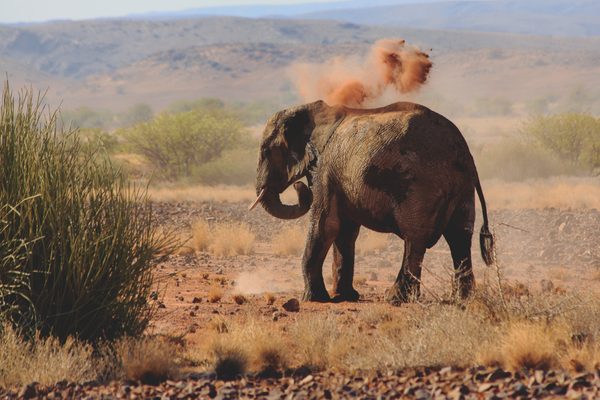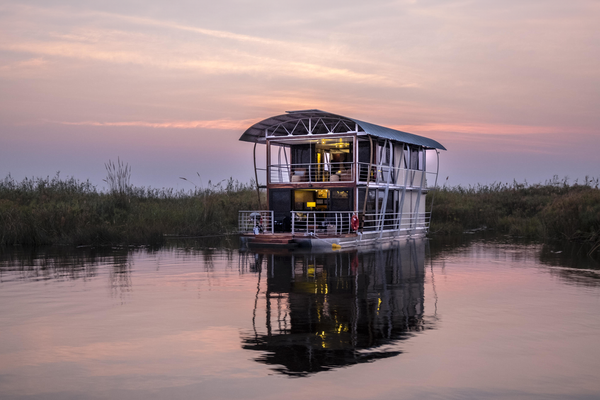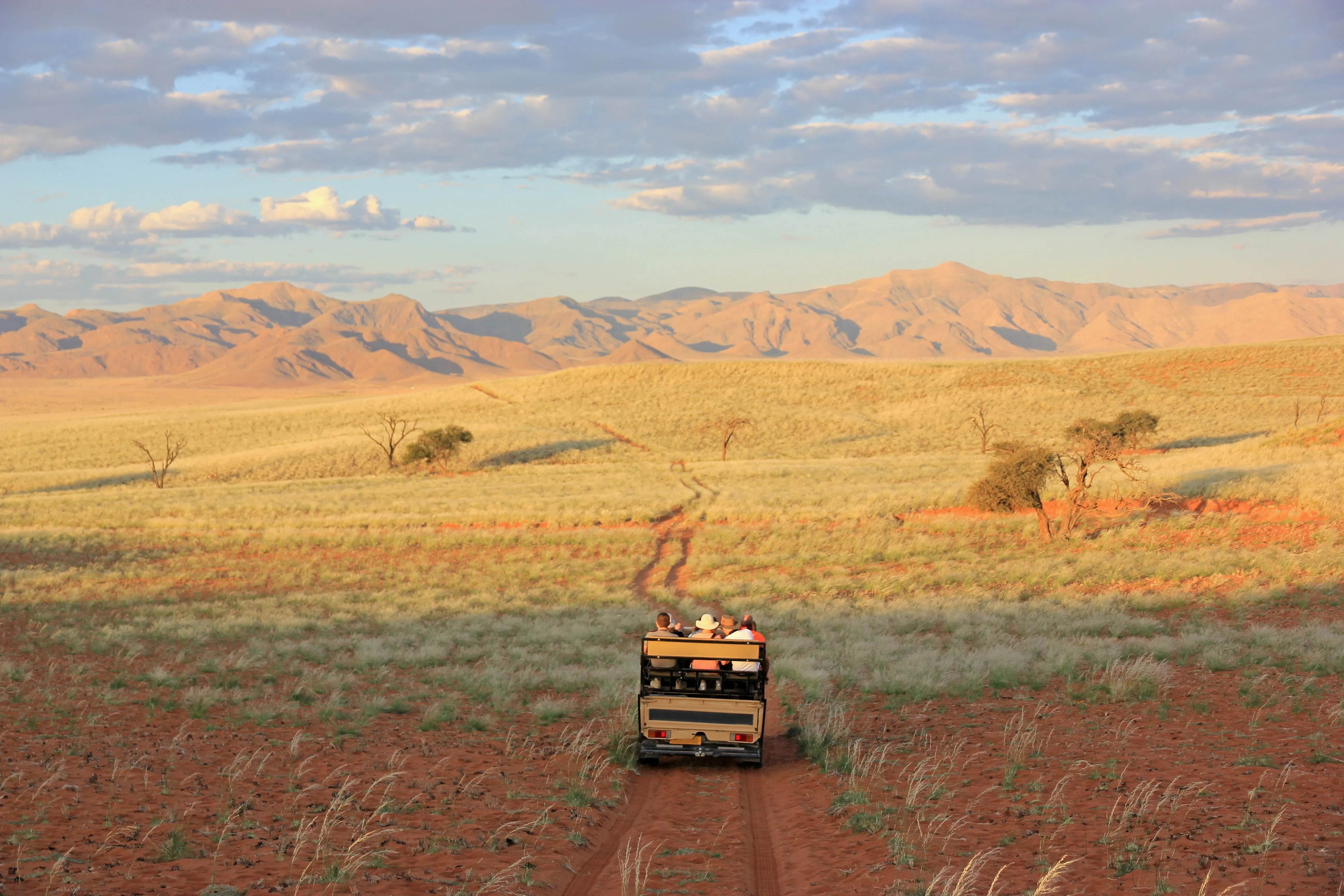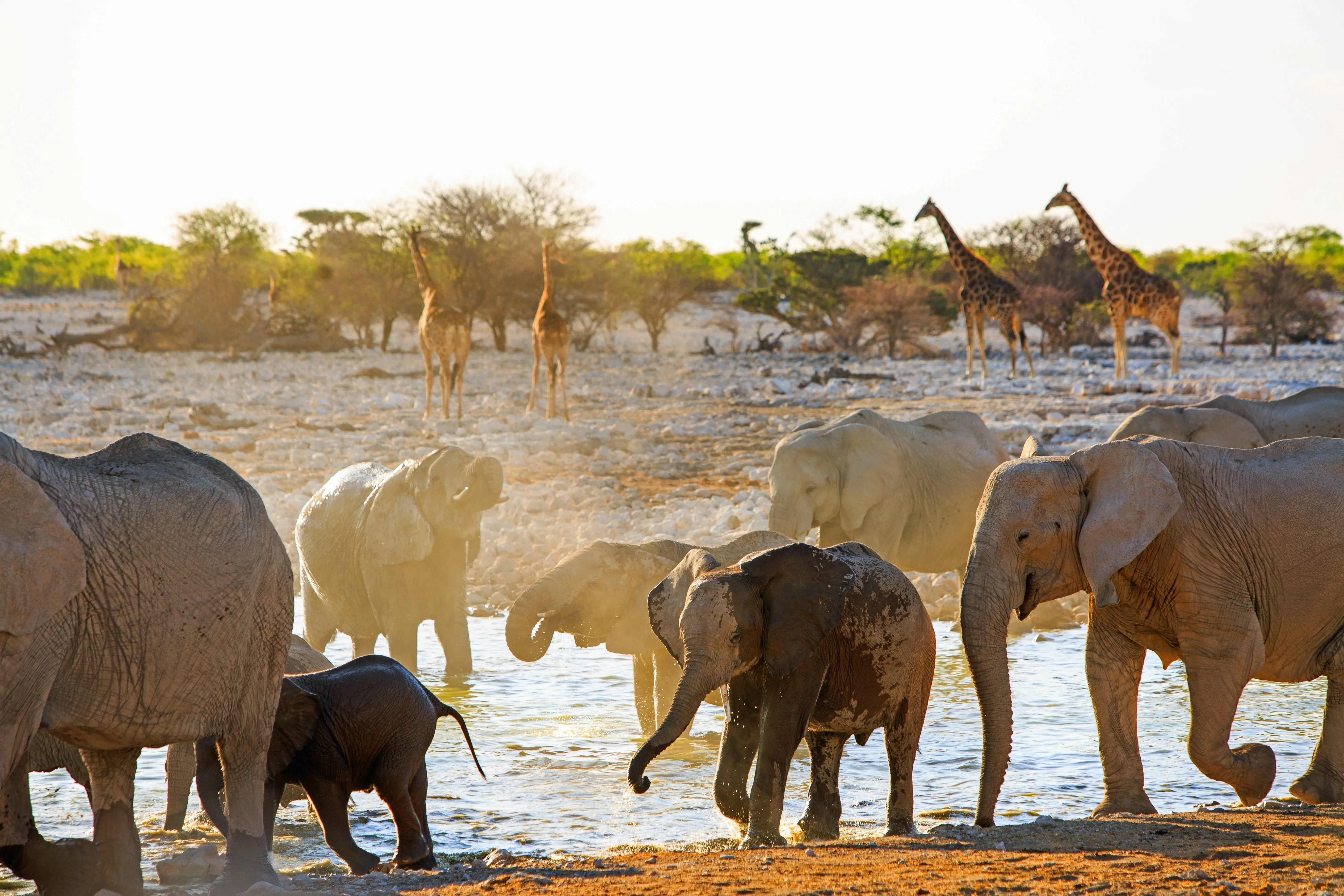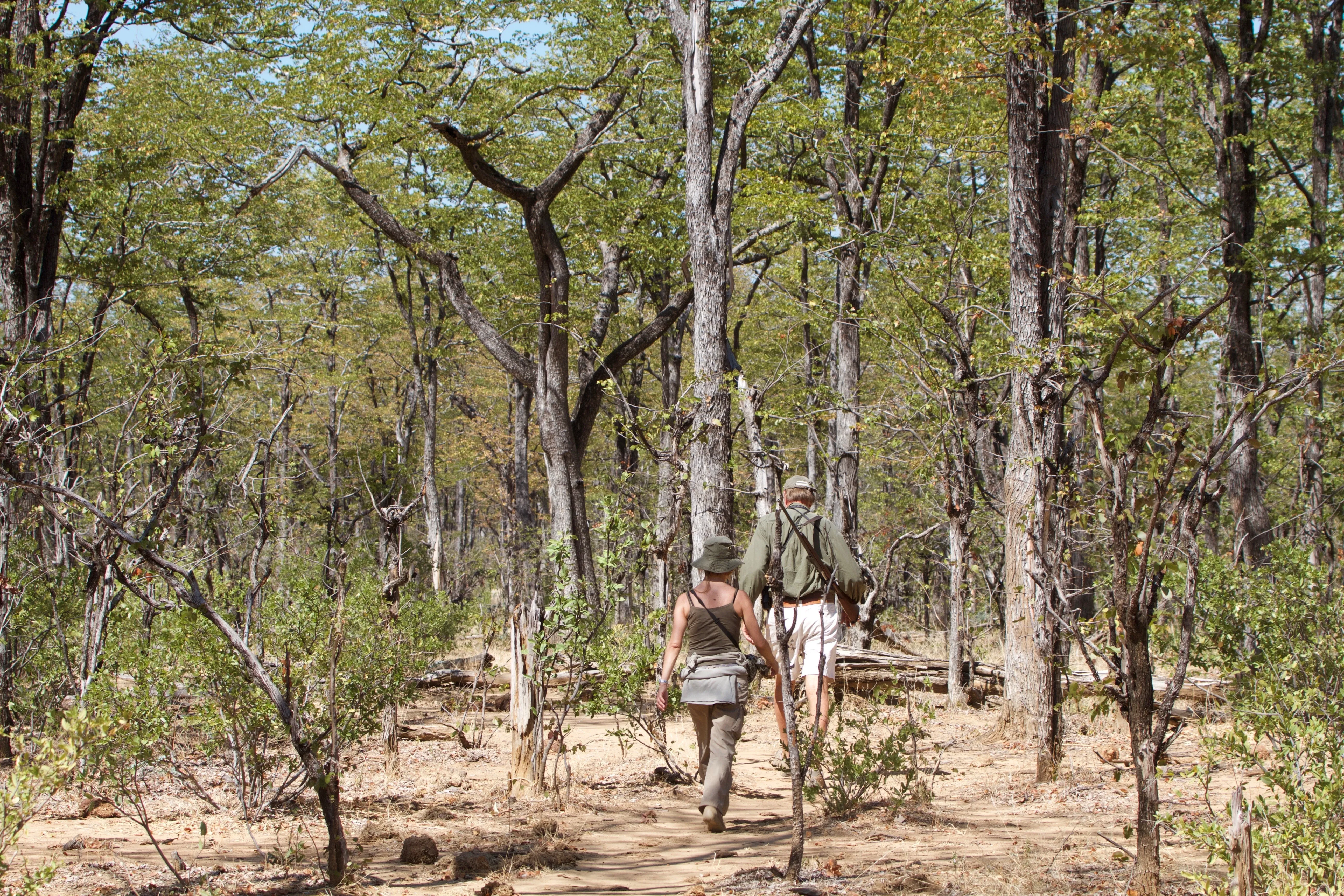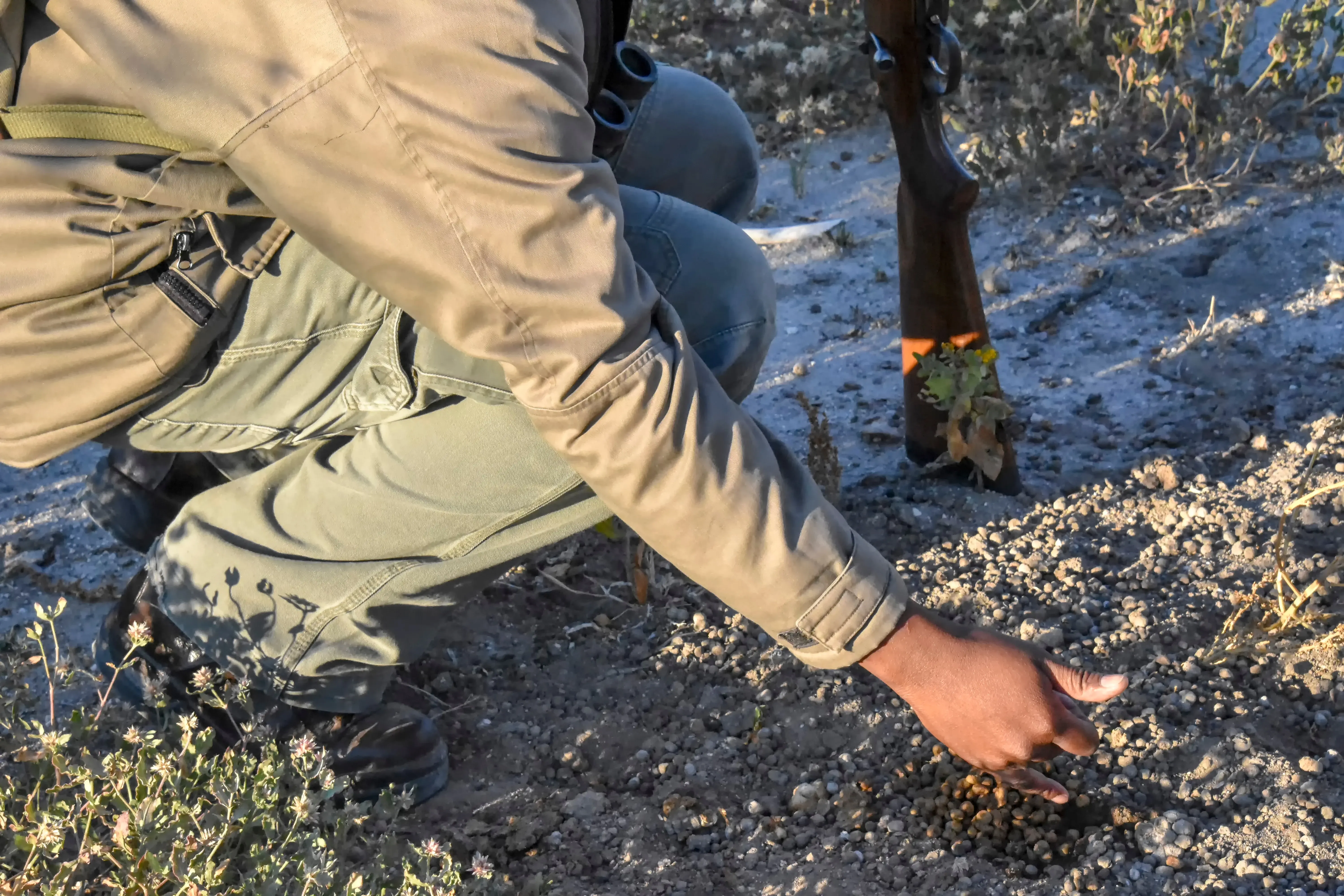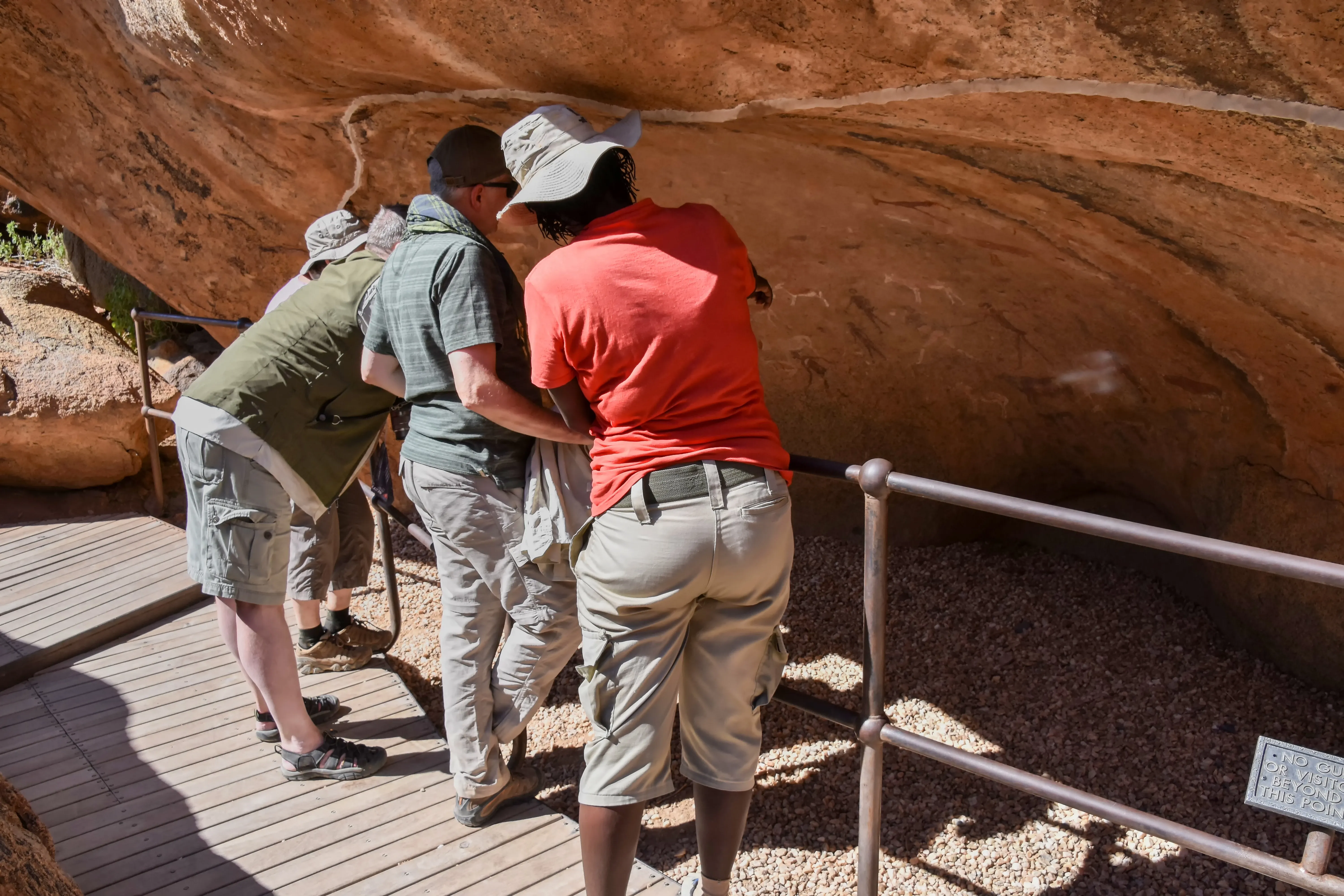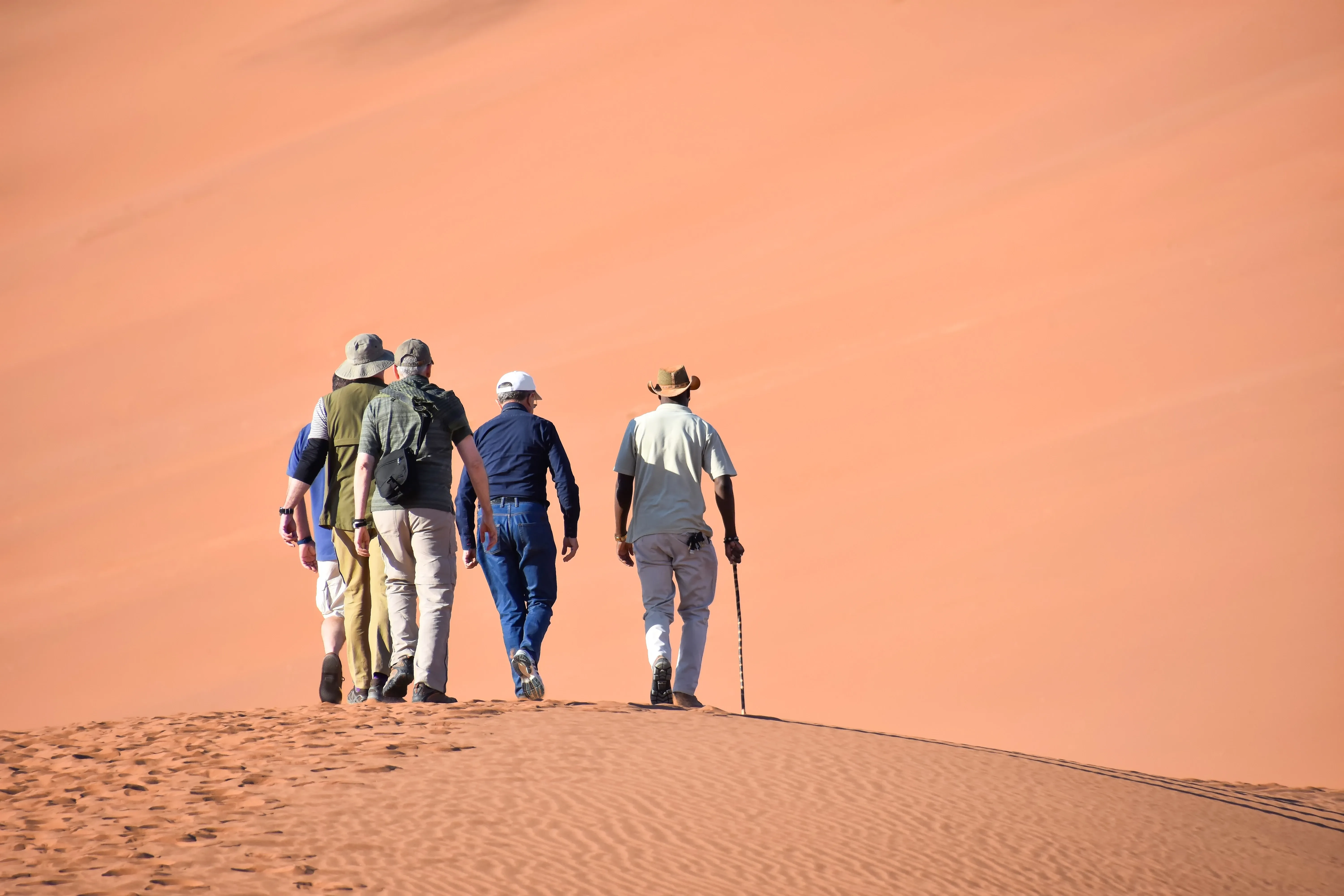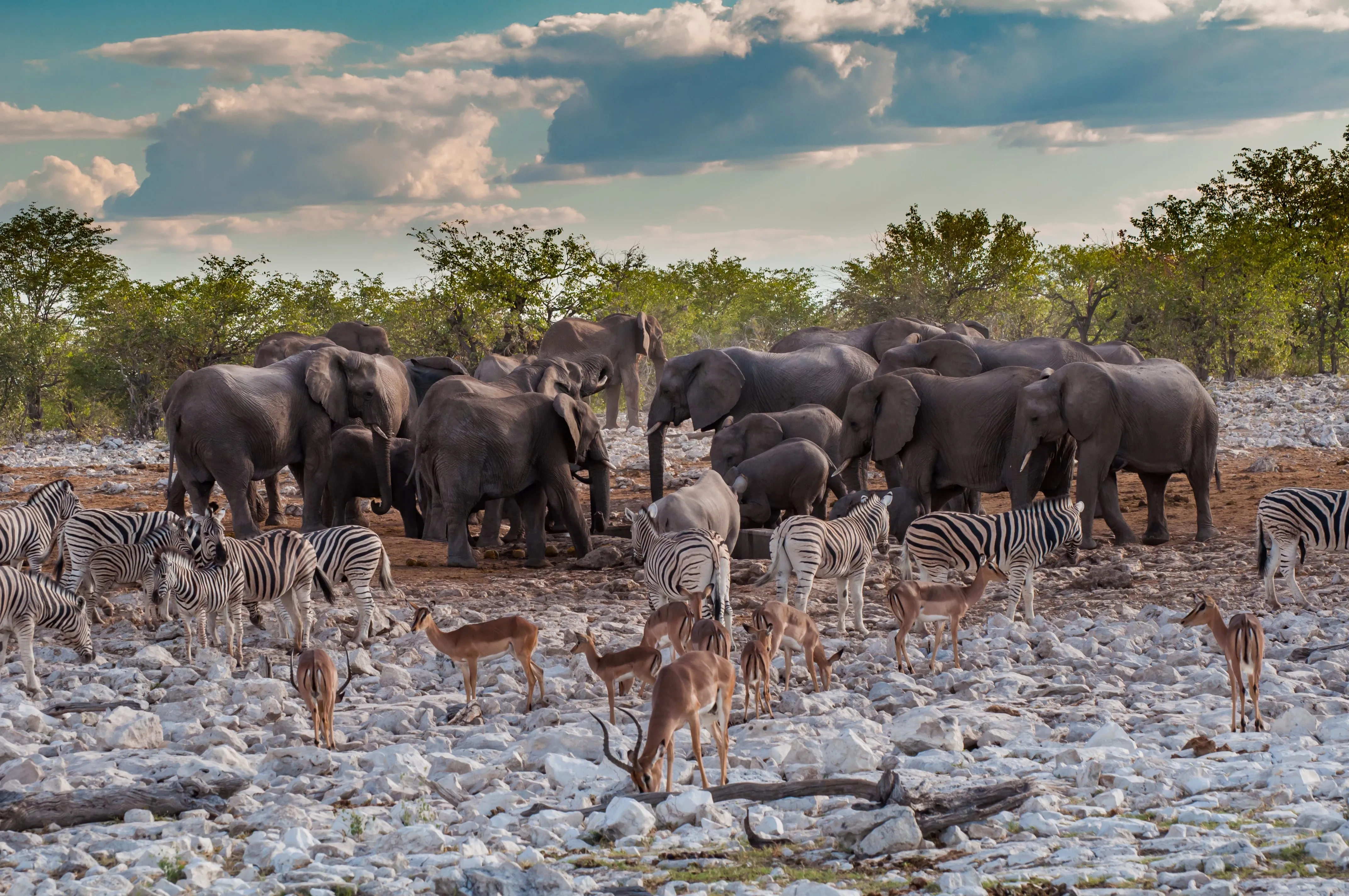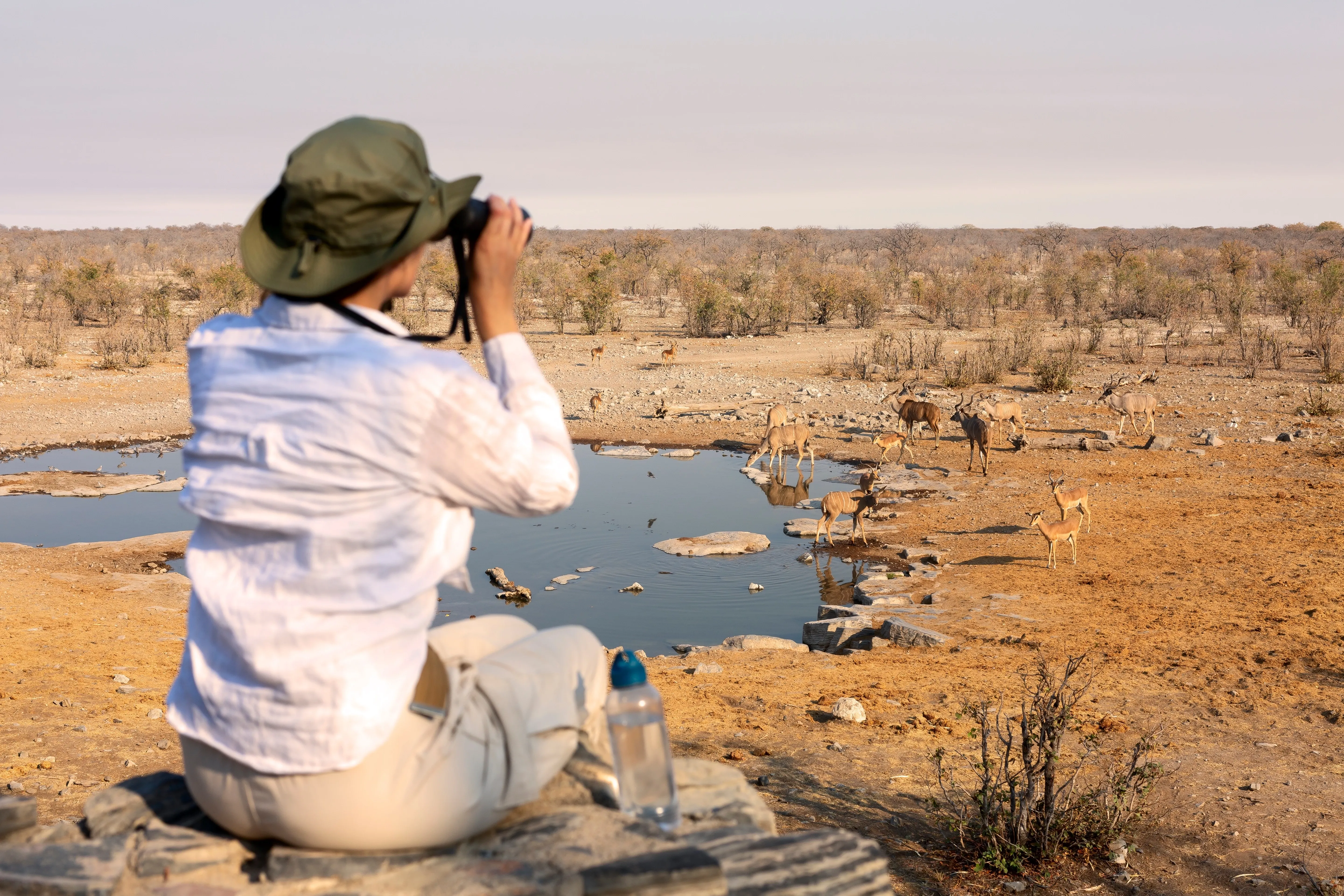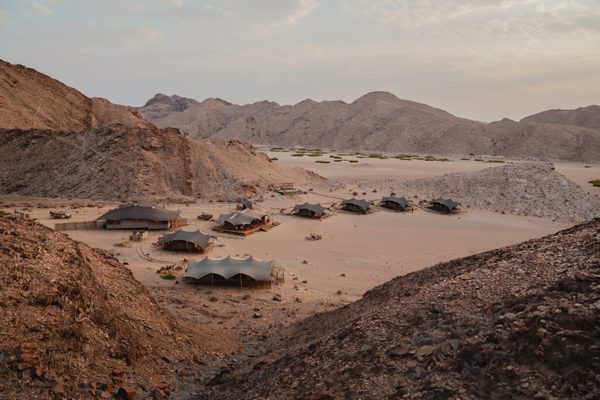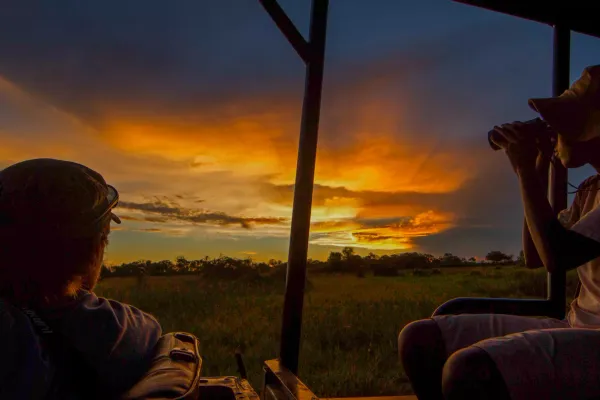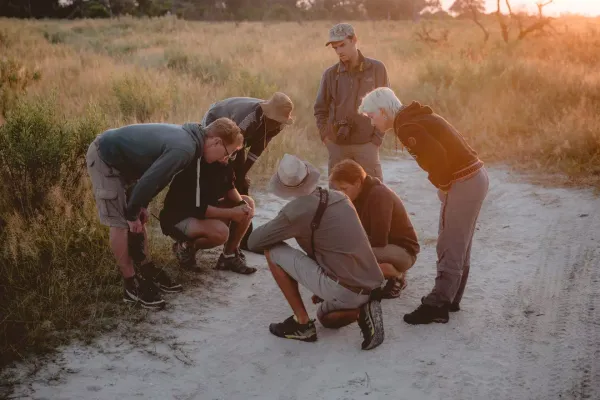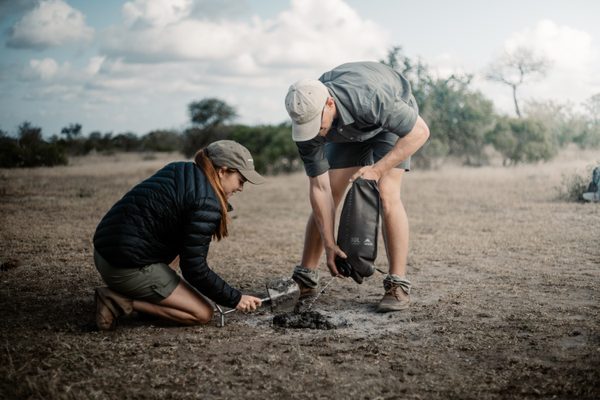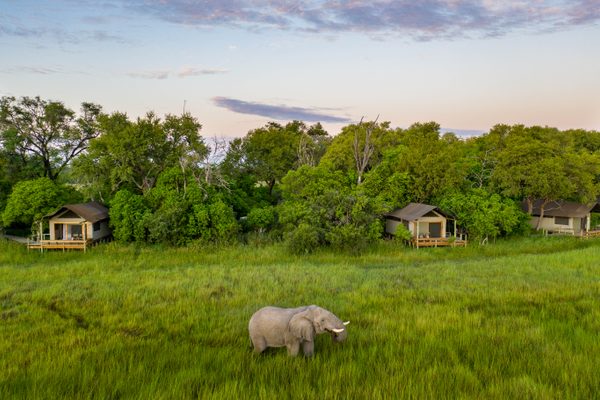Guide courses in Namibia
Namibia's landscape is characterized by diverse and striking ecosystems, including the ancient Namib Desert with its towering sand dunes, and the rocky terrains of Damaraland and Kaokoveld. The country hosts a remarkable array of wildlife adapted to its varied environments, from desert elephants and lions to the rare desert rhino.
The lush floodplains of the Caprivi Strip and the semi-arid savannahs of the Kalahari Desert further add to Namibia's rich biodiversity. National parks like Etosha play a crucial role in conserving this natural heritage, protecting endangered species and unique flora and fauna.
Namibia's dedication to conservation and its stunning landscapes offer travellers unforgettable experiences of its vibrant and resilient wildlife. One way to witness the dedication of Namibia’s conservation efforts, by attending a guiding course.
Participants of a guide course in Namibia not only get a chance to explore the country’s extraordinary landscapes and array of biodiversity but rather gain a deeper knowledge of the interaction between the different habitats, and how their soil and climate enrich the fauna and flora, as well as themselves.
Discover unique wilderness with guiding courses in Namibia
Namibia, a land of breathtaking landscapes and diverse wildlife, offers a unique opportunity to delve into the world of guiding through a variety of specialized courses. These courses are tailored for those with a passion for wildlife, nature, survival skills and cultural tourism, providing the essential knowledge and abilities needed to become an exceptional guide, sharing the wonders of Namibia with the world.
Imagine the experience of waking up to the golden hues of the Namib Desert, the thrill of tracking majestic wildlife, and the joy of narrating stories about ancient landscapes and vibrant cultures. Guiding courses in Namibia offer a comprehensive foundation in both theoretical and practical aspects of guiding. Participants delve into the fascinating realms of ecology, geology, climate, flora, fauna, and cultural history, gaining the knowledge necessary to captivate and educate future guests.
Practical skills are at the heart of these courses, providing hands-on experience that prepares for real-world scenarios. Picture the process of learning to track elusive animals, observing their behaviors in their natural habitats, and mastering the essentials of first aid and 4x4 driving. These skills are not just lessons; they are experiences that connect deeply with the environment and its inhabitants.
Embarking on a guiding course in Namibia is more than just education; it's a journey of discovery, a chance to connect with nature, and an opportunity to share a passion with others.
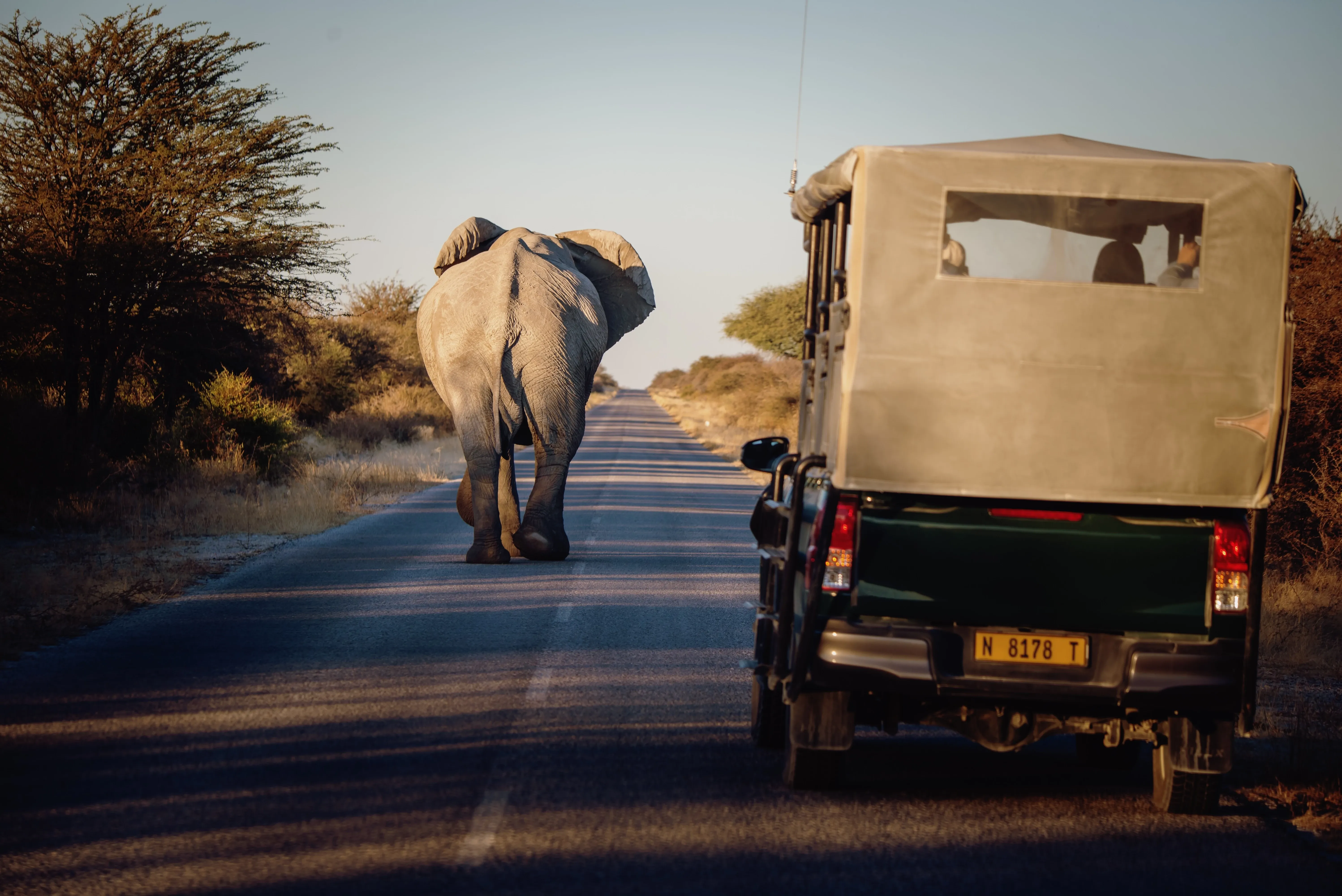
Different guiding courses in Namibia
Within Southern Africa which includes the countries Namibia, South Africa, Botswana, Zimbabwe, Mozambique and Zambia interested participants can find a variety of ranger trainings or guide courses.
Field Guide Course, Namibia
A Field Guide course is an immersive program designed to provide a foundational understanding of the natural environment. Trainees learn about the ecology, geology, flora, and fauna of the region, gaining skills in identifying plants and animals and interpreting natural behaviors.
The course combines classroom instruction with extensive fieldwork, allowing participants to experience firsthand the wonders of nature. This training equips participants to lead informative and engaging safaris, helping visitors appreciate the intricate balance of ecosystems.
Trails Guide Course, Namibia
A Trails Guide course focuses on preparing guides to lead walking safaris and hiking excursions through diverse landscapes in Southern Africa. Participants learn advanced navigation techniques, safety protocols, and how to read animal tracks and signs. Emphasis is placed on understanding the behavior of potentially dangerous animals and ensuring the safety of both the guide and guests. This opportunity fosters a deep connection with the environment, encouraging participants to share their passion for the wilderness while promoting conservation and responsible tourism.
Anti-Poaching Course, Namibia
An Anti-Poaching course equips individuals with the skills and knowledge needed to combat wildlife crime. This intensive program covers tracking techniques, surveillance, and the use of technology in anti-poaching efforts. Participants also learn about the legal aspects of wildlife protection and how to work effectively with law enforcement and local communities.
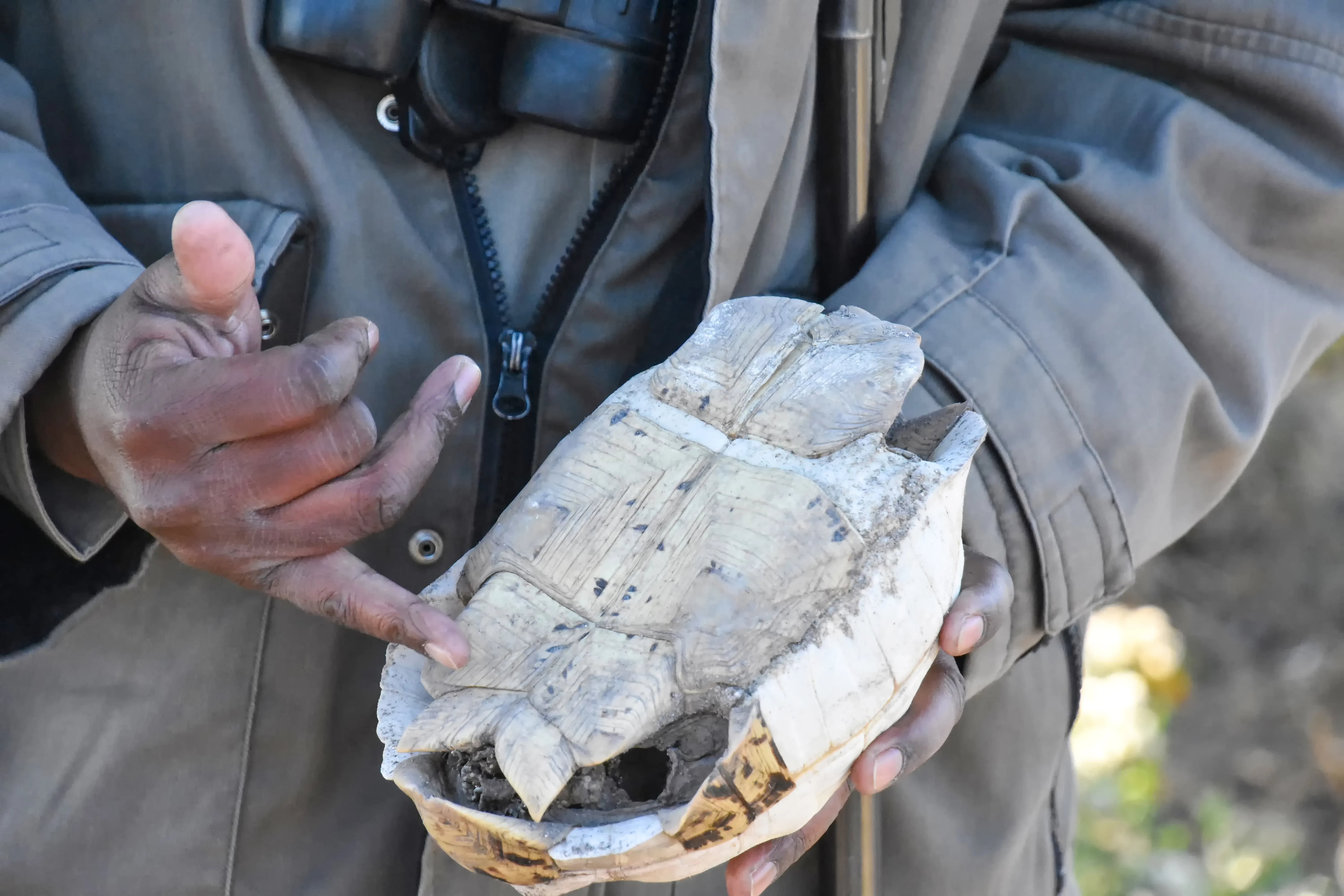
Tracking Course, Namibia
A Tracking course is designed for those interested in mastering the ancient art of animal tracking. Participants learn to read and interpret signs left by animals, such as footprints, droppings, and broken vegetation. The course emphasizes patience, attention to detail, and a deep understanding of animal behavior. Trainees are taught to differentiate between species and gauge the age of tracks, skills essential for both wildlife conservation and guiding. This knowledge enhances the wildlife viewing experience, allowing guides to lead guests to rare and elusive animals.
Birding Course, Namibia
A Birding course is ideal for those passionate about avian life. Most programs cover the identification of Namibias 700 bird species, understanding their calls, and recognizing their habitats and behaviors. Participants learn more about migratory patterns, breeding habits, and the ecological roles of birds. The courses often include field trips to diverse bird habitats, providing practical experience in spotting and documenting bird species.
Guide Course, Namibia
A Guide course is a comprehensive program designed to prepare guides for a wide range of trips, including cultural, historical, and city tours. The course covers effective communication skills, public speaking, and storytelling techniques, enabling guides to engage and inform diverse audiences. Participants learn about the key historical, cultural, and geographical features of the areas they will guide in, ensuring accurate and captivating presentations.
Despite the range of guide courses in Southern Africa, Namibia is still in it is baby shoes. But Namibia is a unique destination offering other sightings and learning material in comparison to the broader course offers in the other Southern African countries.
Frequently Asked Questions about Guide Courses in Namibia
Can I obtain a accredited qualification whilst attending a guiding course in Namibia?
For those eager to start this transformative journey, it is important to consider a few key tips. Choosing a course accredited by recognized authorities, such as the Namibia Tourism Board (NTB) or the Field Guides Association of Southern Africa (FGASA), ensures that the training is of high quality and widely recognized. This accreditation not only enhances the value of the education but also provides a respected certification that opens doors to rewarding career opportunities in the guiding industry. Courses can range in length from a few weeks to several months, offering flexibility to suit different schedules and career aspirations.
While the cost of guiding courses varies depending on the provider and course duration, investing in such education is invaluable for a future in guiding. Fees generally include tuition, materials, accommodation, and meals, so it's crucial to budget accordingly and clarify what is covered. Some courses may have specific prerequisites, like a basic level of education, prior experience in the field or a rifle handling certificate. Checking these requirements before enrolling helps ensure that candidates meet the necessary criteria, paving the way for a career in the guiding industry. The certification obtained upon completion serves as a testament to the skills and knowledge gained, further boosting career prospects.
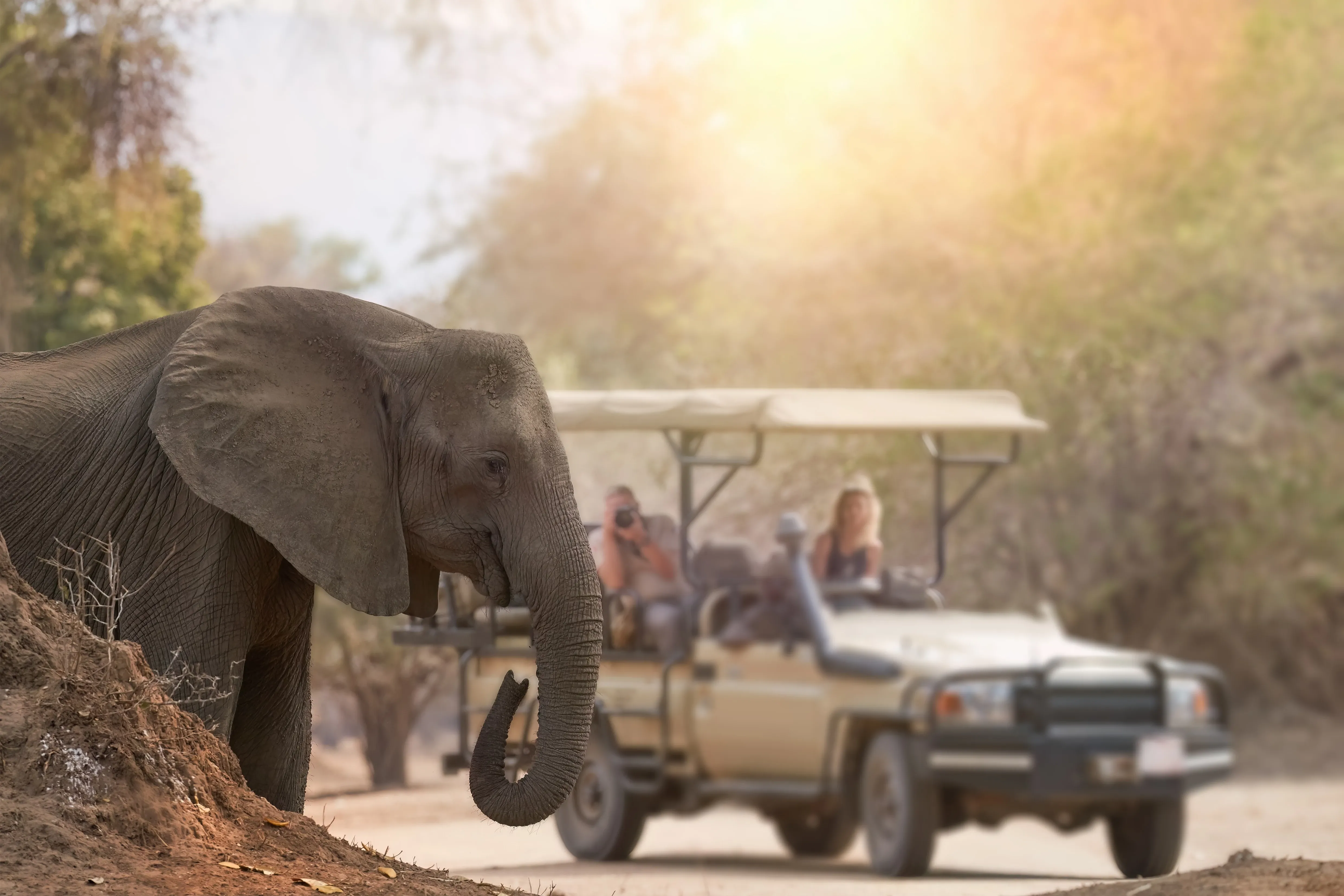
What should I expect on a guiding course in Namibia?
During a guiding course in Namibia, participants should anticipate a demanding and immersive experience. Temperatures can be extreme, often reaching into the 40°C range during the summer months, so preparing for heat is essential. Expect to spend the majority of the day outdoors, engaging in various field activities and learning to navigate the diverse landscapes. The course involves significant study time, with lectures and practical sessions designed to build a deep understanding of the environment.
Accommodation is basic and far from European standards, typically involving shared dome tents with minimal amenities. Power shortages can occur, as electricity is usually provided by solar panels or occasionally by generators, so modern conveniences are limited. A typical day begins early, often before sunrise, with a 3 to 4-hour excursion into the bush, followed by a hearty brunch. Afternoons are filled with additional field activities or lectures, and evenings are spent in camp, often with dinner under the stars. This lifestyle promotes a strong connection with nature, fostering both personal growth and professional development.
Which course is best for guide in Namibia ?
The guiding courses in Namibia are the once who give its participants a broader understanding of cultural aspects, environment and wildlife as well as teaching them several essential qualities and skills. As a guide it is important to get in-depth knowledge about the destination, including its history, culture, and key points of interest, providing guests with accurate and engaging information.
The best guide courses teach their participant effective communication skills such as conveying information clearly, adapting guiding style to different audiences, and listening to and answering guest questions thoughtfully. Participants who want to become guides should bring along enthusiasm and passion for the destination and the role of guiding, as guides should inspire excitement and interest in guests. Strong interpersonal skills help a guide build rapport, manage diverse personalities, and create a welcoming atmosphere.
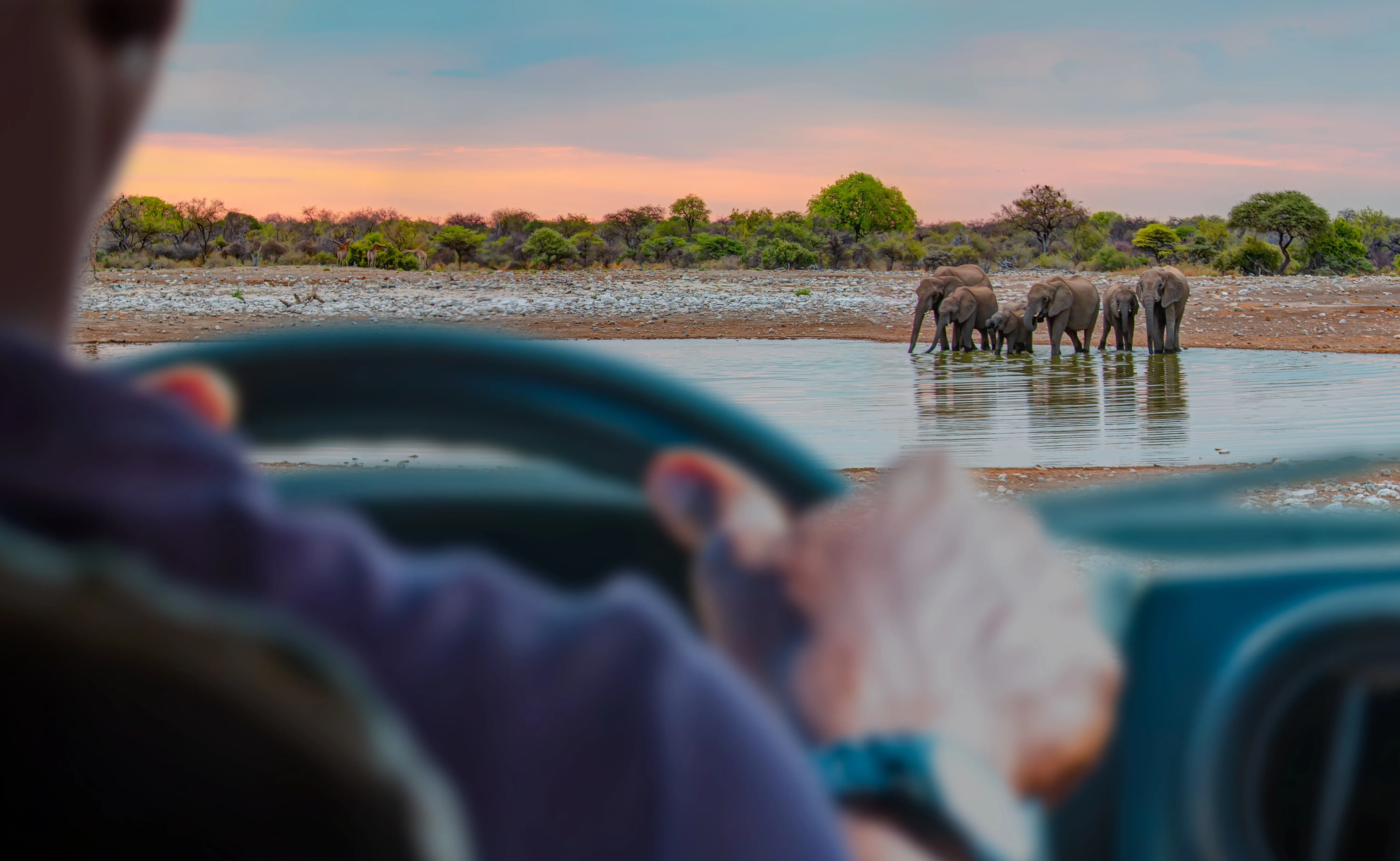
Adaptability and problem-solving skills are key for handling unexpected changes or challenges during a journey, while organizational skills ensure smooth logistics and efficient guide management. Cultural sensitivity is important for navigating interactions respectfully and inclusively. Guide courses therefore teach their participants those important skills and raise more awareness.
Another important factor is safety. If participants are looking for the best guide course, they should check if the courses covers safety protocols and well-being of guests. As guides are often travelling long distance and in remote areas it is vital to have a broad understanding of these topics. awareness is essential, as great guides are trained in safety protocols and ensure the well-being of guests.
Overall, the best guide course blends knowledge, communication, enthusiasm, interpersonal skills, adaptability, organization, safety awareness, storytelling, and excellent customer service to create memorable and enjoyable experiences for guests.
Three reasons why one should do a guiding course in Namibia
- #1 Journey of discovery: A guiding course provides a grand journey of discovering unique fauna and flora, untouched wilderness and oneself.
- #2 Life-lasting friendships: During guiding courses you will bond with your fellow participants in a way no one else can relate and many life-lasting friendships have been formed.
- #3 Getting out of comfort zones: Guiding courses often take place in unspoilt nature and offer participants a chance to get out of their comfort zones, trying something new and learn more about their skills and needs in their every-day-life.
Sign up for the newsletter
By clicking on “Subscribe now” I will subscribe to the Conscious Explorer newsletter with all the information about mindful travel. Information on the success measurement included in the consent, the use of the shipping service provider MailChimp, logging of the registration and your rights of revocation can be found in our privacy policy.
